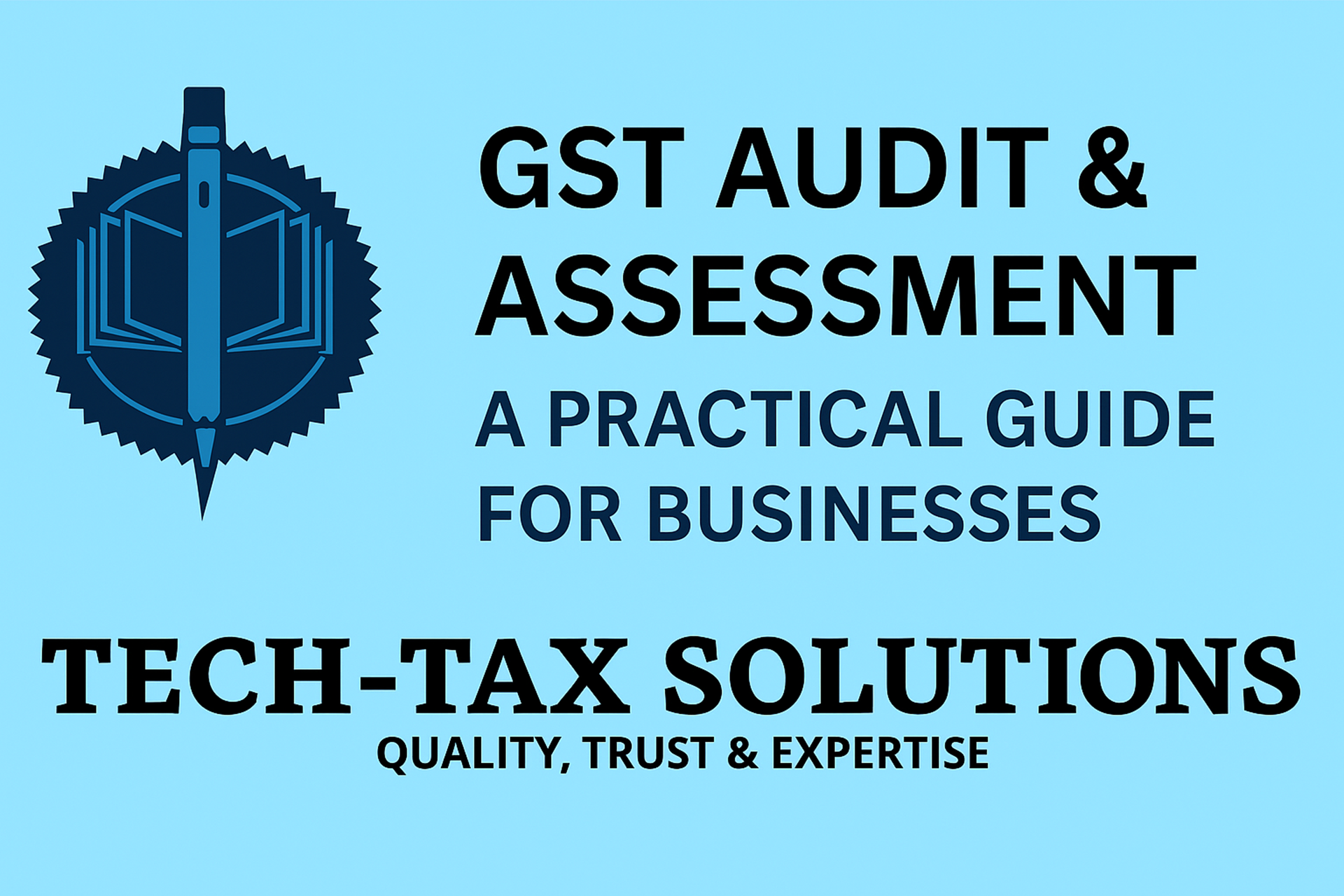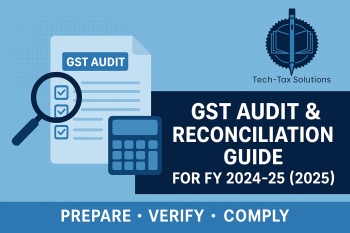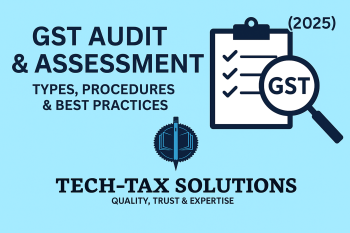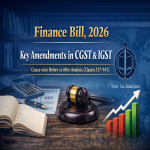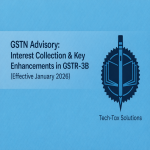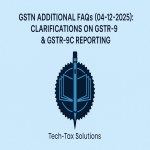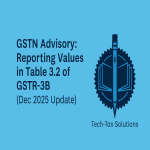🔹 Introduction
Under GST, audits and assessments are key mechanisms for ensuring compliance. While businesses often focus on filing returns, scrutiny, audit, and assessments by tax authorities can expose errors, mismatches, or non-compliance. A proper understanding of legal provisions, procedures, and required documentation helps avoid penalties and litigation.
This article provides a compliance-focused guide to GST audits and assessments in 2025.
(References: Sec. 61–66 of CGST Act, Rules 99–102)
🔹 Types of GST Audits & Assessments
1. Scrutiny of Returns (Sec. 61, Rule 99)
-
Officer scrutinizes returns (GSTR-1, GSTR-3B, GSTR-9).
-
If mismatch found, notice issued in ASMT-10.
-
Taxpayer must reply in ASMT-11 within 15 days.
-
If reply unsatisfactory → Further proceedings (DRC-01).
2. Assessment of Non-Filers (Sec. 62)
-
If registered person fails to file return, officer issues best judgment assessment.
-
Order issued in ASMT-13.
-
Taxpayer can file pending return within 30 days, assessment withdrawn.
3. Assessment of Unregistered Persons (Sec. 63)
-
If a person liable to register fails to obtain registration, officer assesses tax liability.
-
Order in ASMT-15.
4. Summary Assessment (Sec. 64)
-
Used in urgent cases (e.g., risk of revenue loss).
-
Officer issues assessment order in ASMT-16.
-
Can be withdrawn if unjustified.
5. Special Audit (Sec. 66, Rule 102)
-
Directed when officer suspects undervaluation, excessive ITC claim, complex accounts.
-
Conducted by a CA/CMA nominated by Commissioner.
-
Taxpayer must cooperate and provide records.
-
Findings used for further proceedings.
🔹 Step-by-Step Compliance During GST Audit & Assessment
📌 Step 1: Receive Notice
-
Scrutiny notice (ASMT-10) or special audit direction.
-
Check timelines for response.
📌 Step 2: Collect & Verify Records
-
Sales & purchase registers.
-
GST returns (GSTR-1, 3B, 9, 9C).
-
Input Tax Credit reconciliations (books vs. GSTR-2B).
-
E-Way Bills vs. invoices.
-
Stock registers, trial balance, financial statements.
📌 Step 3: File Reply
-
Reply online (ASMT-11, DRC-06) with reconciliations.
-
Attach supporting evidence (invoices, ledgers, tax payment proofs).
📌 Step 4: Cooperate in Special Audit
-
Provide records to CA/CMA.
-
Attend hearings, if required.
📌 Step 5: Post-Audit Compliance
-
If additional liability found → Pay via DRC-03.
-
If order issued (ASMT-13/15/16) → Appeal in APL-01 within 3 months, if aggrieved.
🔹 Common Issues Observed During Audit
-
Mismatch between GSTR-1 and GSTR-3B.
-
Excess ITC claimed not supported by GSTR-2B.
-
Non-filing of returns (triggering best judgment assessment).
-
Wrong classification/HSN errors.
-
Non-maintenance of books for 6 years (mandatory).
🔹 Penalties & Consequences
-
Sec. 122: Penalty for incorrect returns or wrong ITC = ₹10,000 or tax evaded, whichever higher.
-
Sec. 74A (from FY 2024-25): Unified penalty for short payment, fraud, or suppression.
-
Sec. 132: Prosecution in severe fraud cases.
-
Recovery via DRC-09/13 if not paid.
🔹 Best Practices to Stay Audit-Ready
-
✅ File returns (including NIL) on time.
-
✅ Reconcile books vs returns vs 2B monthly.
-
✅ Maintain organized documentation for 6 years.
-
✅ Regular internal GST health checks.
-
✅ Train staff to respond promptly to notices.
-
✅ Consult professionals for complex issues.
🔹 FAQs on GST Audit & Assessment
Q1. Is GST audit by CA/CMA mandatory now?
➡️ No, mandatory GST audit requirement was removed in 2021. But special audit may be ordered by officer.
Q2. How long should GST records be preserved?
➡️ 6 years from due date of annual return.
Q3. Can best judgment assessment be cancelled?
➡️ Yes, if return filed within 30 days.
Q4. Can I appeal against summary assessment order?
➡️ Yes, appeal can be filed in APL-01.
Q5. What triggers a special audit?
➡️ Complex cases of valuation, ITC fraud, or major discrepancies.
🔹 Conclusion
GST audit and assessment are not just departmental checks, but an opportunity for businesses to identify compliance gaps. With proper reconciliations, documentation, and timely response to notices, businesses can handle audits smoothly and avoid penalties.
📌 Facing GST audit or scrutiny notice? Need help with reconciliations and replies?
Contact Tech-Tax Solutions – Quality, Trust & Expertise in Ghaziabad, Noida & Delhi.
